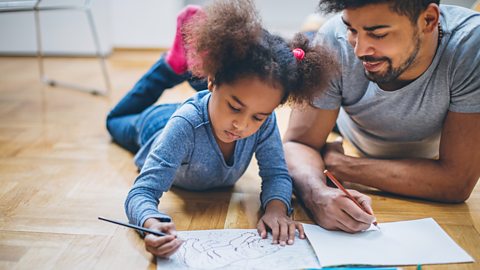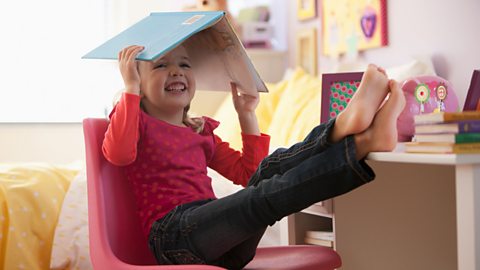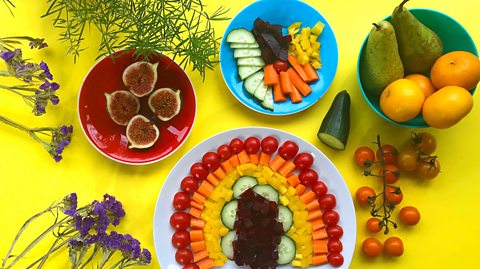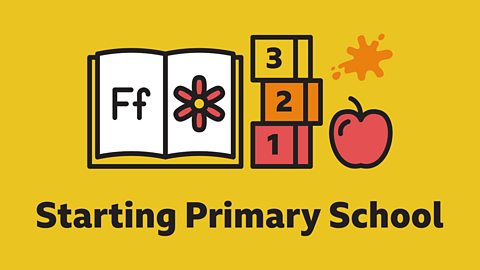This article was first published in January 2020
It's a new year, a new school term, but is it a new you? If you have a child at school and want to incorporate some new, simple habits to boost their learning and creativity, here are five of the best for you to try.
1. Love your library

ItÔÇÖs proven that one of the best habits to support a childÔÇÖs learning is reading ÔÇô essential for developing their language and literacy skills. What better way to encourage this than regular trips to your local library?
After setting up their very own library card (a lot of libraries will set up an account for any aged child, as long as they are accompanied by an adult), your child can pick their reading for the week, whether thatÔÇÖs a picture book, a comic, a magazine, fiction, or non-fiction ÔÇô it all counts!
Many libraries also offer free childrenÔÇÖs clubs, events, and learning schemes, so have a look and see whatÔÇÖs on.
2. Be brave and try new things

Resilience is an important trait for any child, allowing them to persist in their goals and discover, then develop, their passions.
Skimming stones is a good example. ItÔÇÖs a skill that you can pick up in half an hour or less, but very few get it right in their first few tries. It takes resilience and a good grasp of failure to make it past those first few tries and onto success. And this applies to any skill - from counting to karate.
So, how do you teach your child resilience? Show them that the process of trying new things, failing, and then trying again is actually positive and important for growing as a person ÔÇô in short, be brave, try new things yourself, and remember, making mistakes is how we learn!
If this is something you can do together, great, but it doesnÔÇÖt have to be. As long as you talk about your improvements and how you reached them, it will be a valuable lesson for your child that they can take into school and beyond.
3. Chat, chat, chat!

A very simple idea, but so important. Talk to your child after school and show them that they can approach you and share whatever they need to share ÔÇô about schoolwork, friendships or anything in between.
Easier said than done, of course, but here are some simple ways to encourage itÔÇŽ
The classic ÔÇśHow was your day?ÔÇÖ is a bit too open-ended for young children and can often result in a one-word answer, so try and be a little more specific. Ask what lessons they had, or who they played with at lunchtime. This could lead them into a broader conversation.
Similarly, talk about homework, artwork, or anything else they bring home from school. This could be a precious insight into how their mind works while theyÔÇÖre in the classroom, and may help you identify how you can support them in their learning.
You could also tell them about your day. A few details to model how youÔÇÖd like to talk to each other would be great ÔÇô just remember not to go overboard: leave them time to speak!
4. Ditch the screens before bedtime

How screen time affects young children continues to be a hot topic - whilst some leading paediatricians claim that using screens sporadically isnÔÇÖt harmful in itself to children, many recommend that the hour before bedtime should be as screen-free as possible, as this can help your child to fall into an easier sleep, unhindered by the blue light emitted by screens. And youÔÇÖll have heard it a thousand times before ÔÇô a good nightÔÇÖs sleep really does do wonders for your child the next day at school, so itÔÇÖs a great idea to do everything you can to help this.
Yet again, leading by example is the best form of action; if you have your phone or tablet out just before they go to bed, it will be all the more difficult to tell your child to put one away. So, you can make things easier by filling your house with screen-free alternatives, like books, board games, and drawing or writing material, and then you can use them yourself. This behaviour will catch on quickly!
5. Be creative together

A lot of schoolwork requires creative thinking and thereÔÇÖs no better way to boost your childÔÇÖs creativity than setting up new opportunities to be creative at home.
Your child is never too young to help with the cooking, every now and then ÔÇô even if itÔÇÖs just child-friendly tasks like mixing or pouring. You could even ask their opinion. ÔÇśWhat do you think we could add to this Spag Bol to make it better?ÔÇÖ ÔÇśWhat shape should we make these biscuits?ÔÇÖ You donÔÇÖt have to take all of their suggestions, of course, but the discussions will be really helpful for your child.
If cooking isnÔÇÖt your thing, you could get crafty (papier-m├óch├ę will never go out of style), colour, draw, or make up a story together ÔÇô there are loads of possibilities - see which one suits your child best.
For further information check out the rest of which has lots of ways to help prepare children for different aspects of school life ÔÇô both practically and emotionally.

More from 91╚╚▒Č Bitesize Parents' ToolkitÔÇŽ
Parents' Toolkit
Fun activities, real-life stories, wellbeing support and loads of helpful advice - we're here for you and your child.

Top tips to support your child's reading at home
Language development expert, Tara Parker, suggests some top tips to help you make the most of your child's reading time. From 91╚╚▒Č Bitesize.

Fun ideas to bring more colour into your family's everyday life
Brighten up the winter months with colourful activities for all the family.

23 language and literacy tips to support your child
Early years teacher Anjali Patel gives her top tips to support your child's language and literacy skills at home.

Louise PentlandÔÇÖs five tips to get you through the school year
Louise shares her top tips for managing the school year from prepping lunches to school admin.

More Starting Primary School videos and articles
Head to our homepage to help you and your child prepare for starting primary school and thrive in school life.
